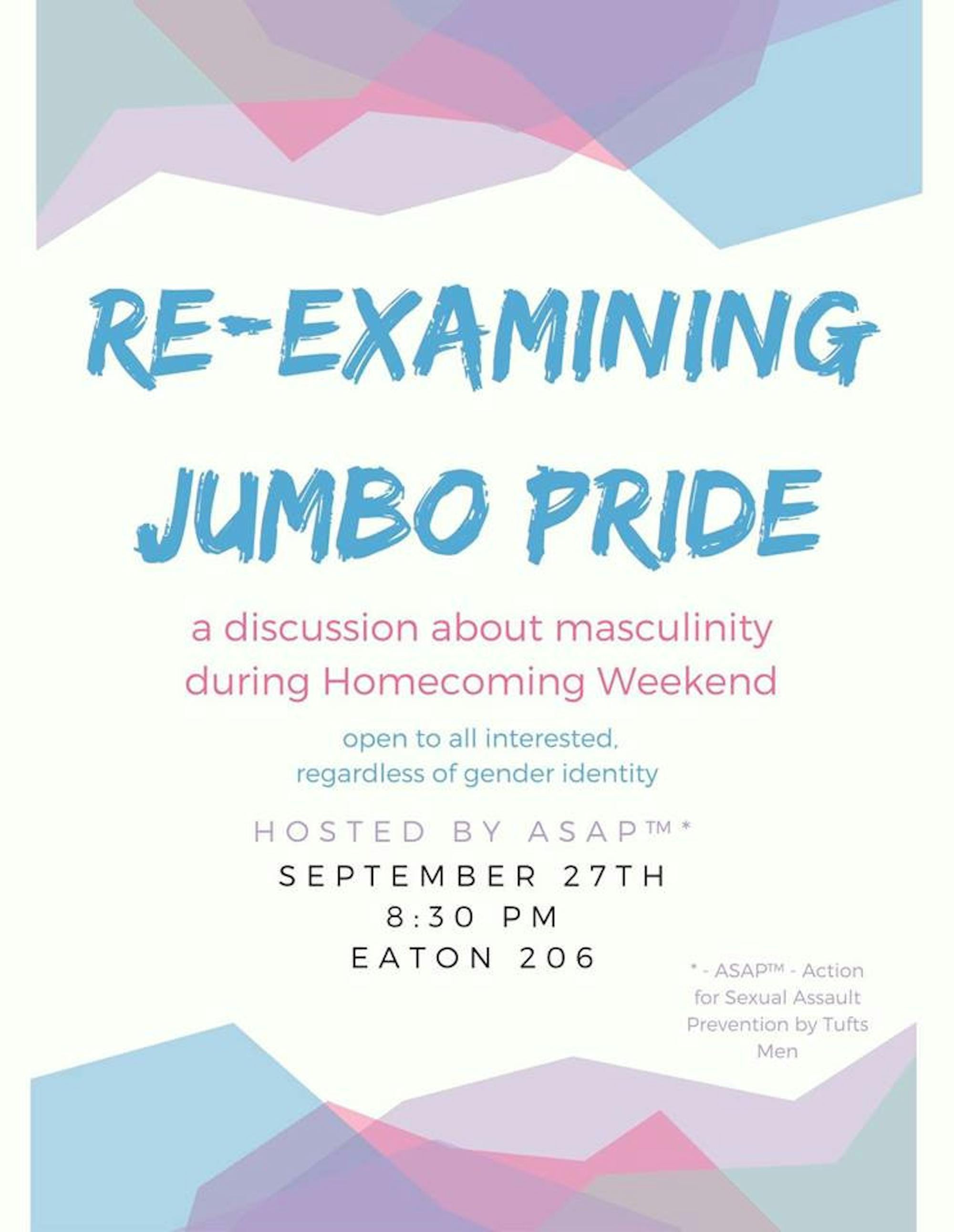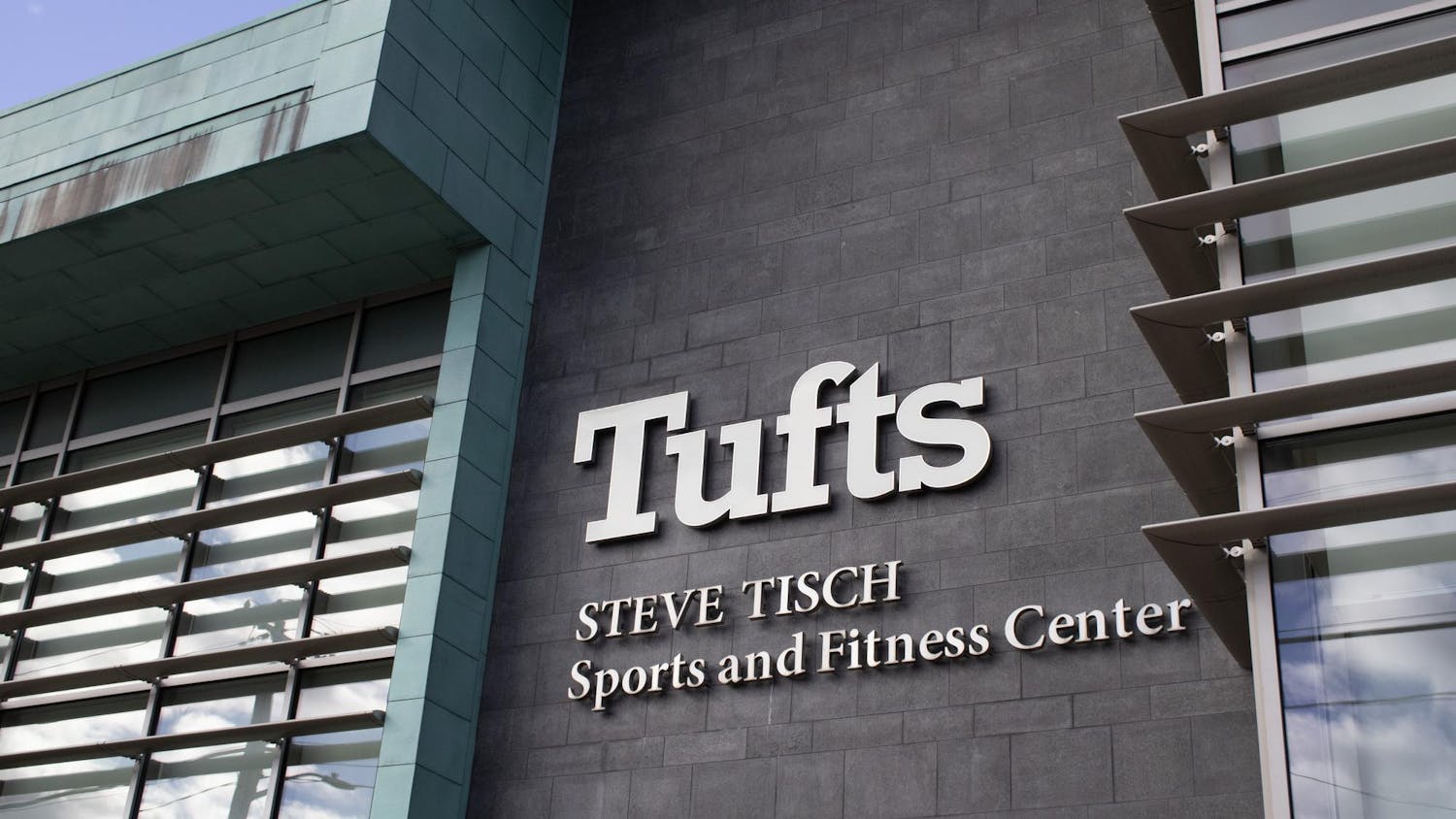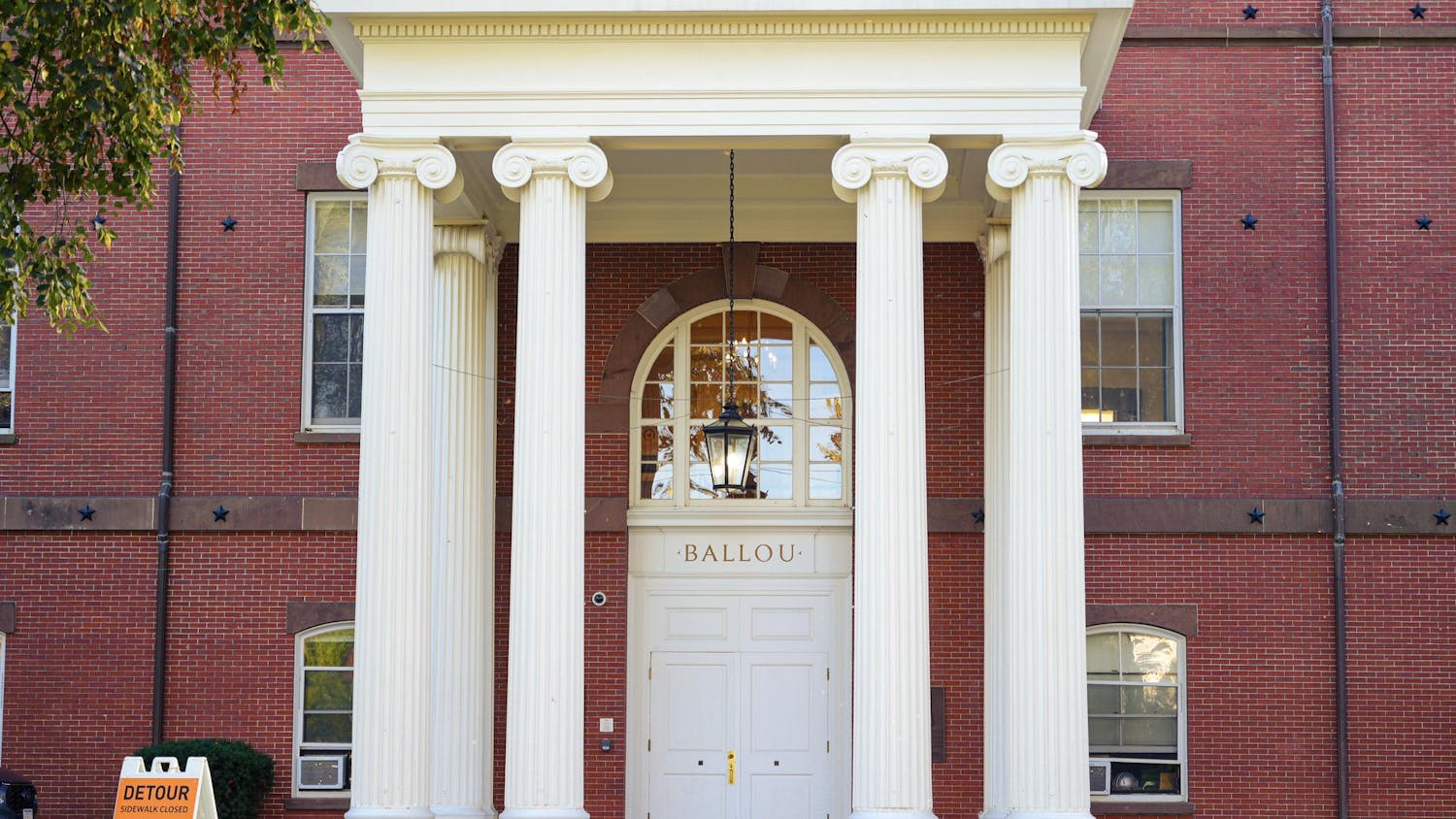Content warning: This article discusses sexual assault.
Action for Sexual Assault Prevention by Tufts Men (ASAPtm), a male-identifying group within ASAP, hosted a discussion in Eaton Hall on the night of Sept. 27. The talk, titled “Re-Examining Jumbo Pride: a discussion about masculinity during Homecoming Weekend,” sought to raise awareness for the concept of toxic masculinity to prevent sexual assault, according to the event's organizers.
The ASAPtm discussion leaders, Hakeem Adeyemi and Benjamin Cole, explained that toxic masculinity has varying definitions and expressions but can best be understood as actions by a male that result in domination of space, aggressive and destructive behavior, heightened competitiveness and one-upmanship and sexual objectification.
In addition to this shared mission, Adeyemi explained that ASAPtm also focuses on the relationship between masculinity and sexual misconduct.
“The conversations about gender and assault are inextricably linked,” Adeyemi said. “And it extends to all spaces and spheres.”
According to Adeyemi and Cole, the event was aimed at providing “action steps” to help keep members of the Tufts community safer through Homecoming weekend. They explained that Homecoming is when the common activities of sports-watching, partying and drinking often result in greater expressions of toxic masculine behavior.
At the start of the event, the discussion leaders emphasized to the room the respect and intentionality with which the discussion would be carried out. They set up ground rules as parameters to create a positive atmosphere for constructive dialogue.
“Seek to understand, then to be understood,” Adeyemi, a junior, said. “Silence is okay.”
First, two video selections were played, and while watching, attendees were encouraged to write their reflections and responses to guiding questions posed by the discussion leaders.
The first video, from the YouTube channel “ImSchmacked,” compiled and set to music various clips of students, most of whom were male. In celebration of St. Patrick’s Day, the students were engaging in activities that included binge drinking and vandalism.
Participants were then asked to share their thoughts on what form masculinity takes on in a party setting.
Josh Stone, a student who attended the event, said that the video showed the potential destructiveness of masculinity.
"The binge drinking and extreme behavior [by the male students in the video] showed me that masculinity really seems to laud ‘loss of control,’ even though it can be so incredibly destructive,” Stone, a sophomore, said.
The organizers then played another video, titled, "A Call to Men - The Next Generation of Manhood," by Tony Porter, CEO and founder of a non-profit of the same name. In the clip, Porter said that all men have a responsibility to create positive masculinity based on respect and create "the next generation of manhood."
The participants were then split into five groups, each led by an ASAPtm discussion leader. The groups discussed the definition of masculinity, how it could be problematic and what action they could take in the coming days.
Cole, a sophomore, said that the event was a success for his organization and its cause.
“We expected around 30 people to come, and 55 actually showed up,” Cole said. “We really only started planning our group last year, so this turnout is really fantastic.”
Cole, who spearheaded formation of the group last year, said that he started the organization after getting involved in ASAP, where he felt that the organization could benefit from male voices, as their absence limited the effectiveness of the organization reaching concerned men on campus.
“I was passionate about preventing sexual assault, but I wanted to see who else was working on this issue before starting my own club. Often, well-intentioned men will check themselves around others so that they don’t make a mistake,” Cole said. “Our power as a male-identifying group is to allow men to make mistakes and become better allies.”
In addition to ASAP's goal of preventing sexual assault by education and supporting survivors of sexual assault, Adeyemi said that ASAPtm also focuses on the relationship between masculinity and sexual misconduct.
“The conversations about gender and assault are inextricably linked,” Adeyemi said. “And it extends to all spaces and spheres.”
That the event occurred on the same day as the Senate Judiciary Committee hearing on sexual assault allegations toward Supreme Court nominee Brett Kavanaugh was a coincidence, according to ASAPtm discussion leaders.
Cole said that the event was not intended to discuss allegations of sexual assault but rather how to create a positive definition of masculinity to prevent sexual assault. He added that masculinity is currently defined by negative and harmful behaviors that are, by nature, linked to sexual assault.
Adeyemi concluded the discussion by saying that the event is the start of a longer discourse.
“[Other ASAPtm organizers and I] hope this is just the start of the conversation,” he said. “One that extends not just to homecoming, but to life.”
Campus sexual assault prevention group holds discussion on masculinity before Homecoming

The promotional poster for "Re-examining Jumbo Pride," an event hosted by Action for Sexual Assault Prevention (ASAP) in Eaton Hall is pictured.





